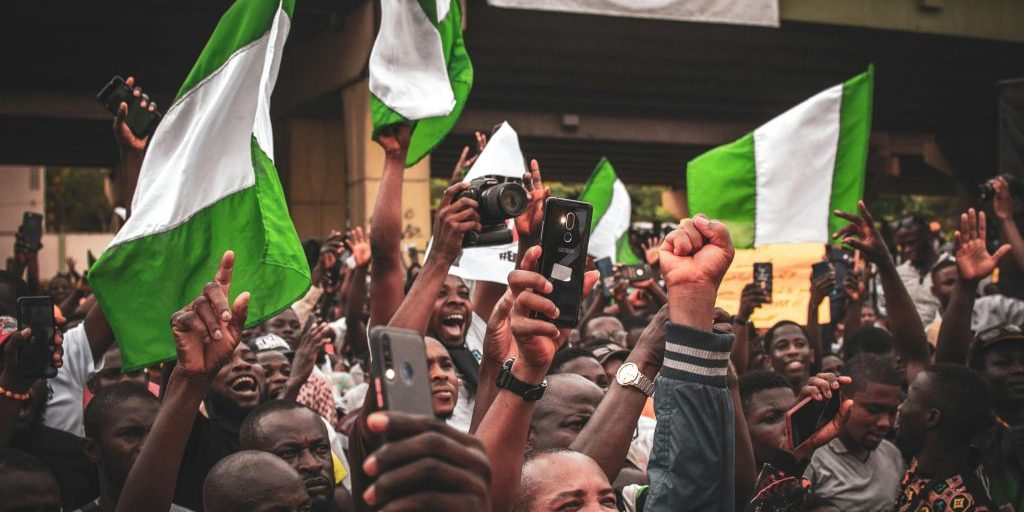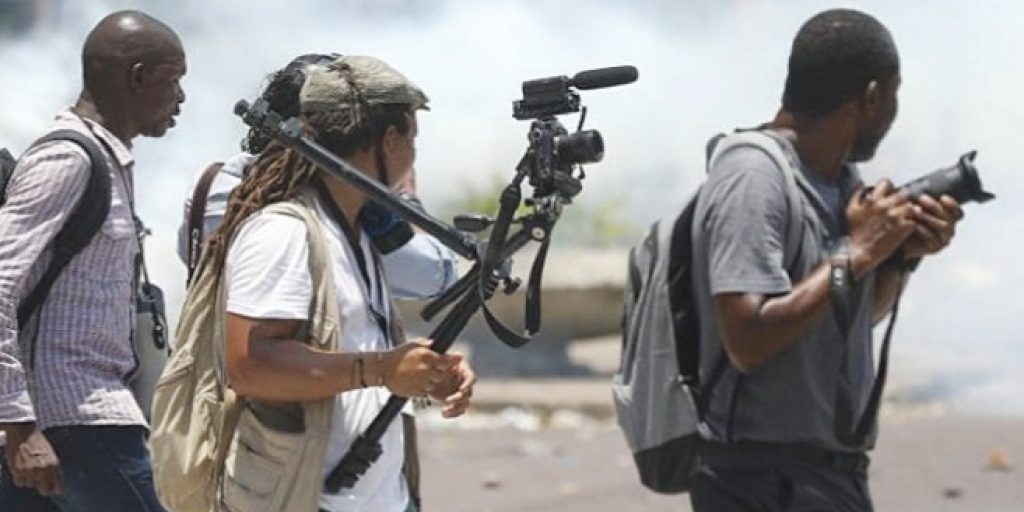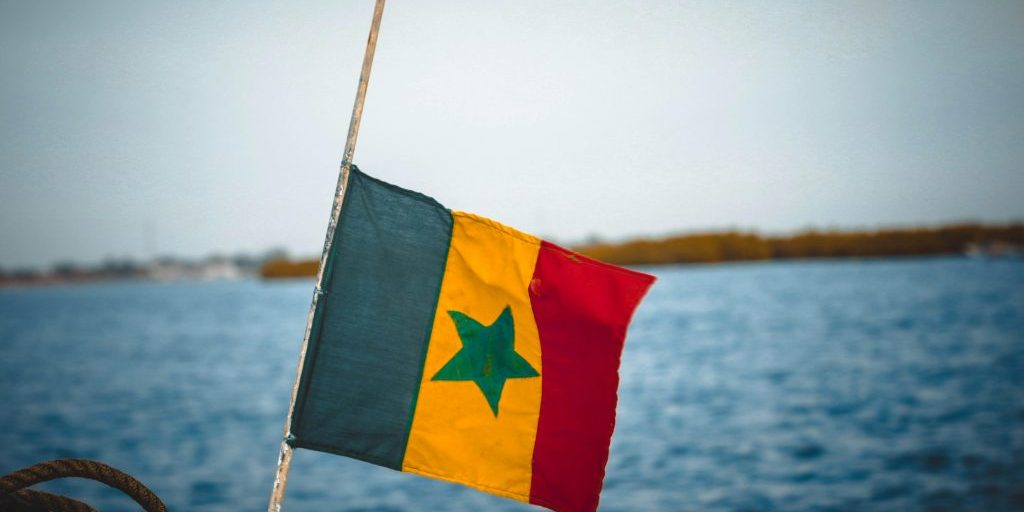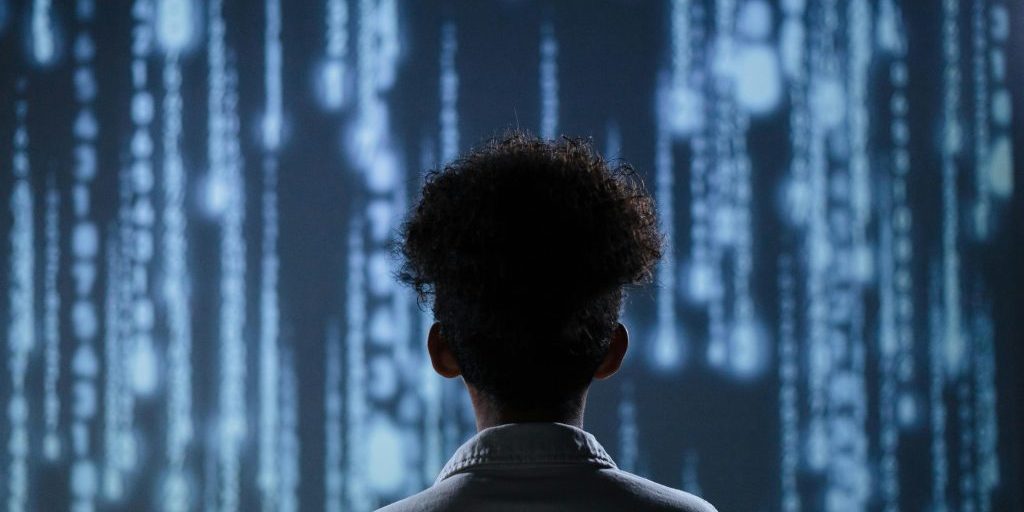Nigerian journalists are under attack amid nationwide protests
PICTURE: Tope A. Asokere/Pexels
Abdulganiyu Abdulrahman Akanbi
International Journalists Network
Journalists may experience heightened violence and threats when covering protests.
In Nigeria, during 10 days of unrest in August, organised by Nigerians fed up with governance issues and the rising cost of living, journalists were arrested and even attacked while reporting and interviewing protesters, according to the Centre for Journalism and Innovation Development’s Press Attack Tracker.
Nigeria’s Constitution stipulates journalists’ freedom to report and promote “accountability of the Government to the people.”
Despite this provision, reporters’ safety remains a worrying concern in the country.
During the August protests in Abuja, Yakubu Mohammed, a conflict reporter at the Premium Times, was harassed, beaten and attacked. ‘I was filming some protesters who were chanting hunger slogans when the police officers came for me. They used their weapons on me including batons before hitting my head with a gun butt,’ said Mohammed.
He was thrown into a police van and his phone was confiscated. ‘I had on a press jacket and even showed them my ID card but they rebuffed my explanations,’ he said. ‘I definitely felt bad because it was obvious I was targeted at the scene.’
While interviewing protesters, Mary Adeboye, a reporter for News Central Television, was hit by a canister of tear gas that was fired at her. ‘I saw the policeman who shot the tear gas, and it hit my leg,’ said Adeboye. ‘I fled and could no longer breathe or walk properly.’
As Premium Times’ Abdulkareem Mojeed covered the protests, security forces opened fire on his car, hitting it with three bullets, he said: ‘After I drove about 600 meters away from the scene, I stopped. Other journalists did too, to see if we could capture the moment better.’
These journalists all identified themselves to the security operatives, but it didn’t stop the violence. ‘Little did we know that the [State Security Service] officials were still after us in their vehicle. As I was about to step out of the car to observe them, my colleagues shouted, “Move! Move! They are coming”,’ said Mojeed. ‘Gripped with shock, I stepped on the car accelerator, [and] the sound of gunfire boomed behind us.’
More than 50 journalists were reportedly arrested during the protests. Nine Radio Ndarason Internationale staff members, including its programme director and editor-in-chief, were detained after ‘reporting on the current protests throughout the country’, according to a press statement released by the station.
Jide Oyekunle, a photojournalist for the Daily Independent and a local representative of the Nigeria Union of Journalists, was also arrested while covering the August protests, and police officers seized his phone for several hours. Similarly, Olukayode Jayeola, a photojournalist with The Punch, was wearing a press vest when police arrested him and confiscated his camera, phones and other personal belongings.
“An officer attached to the [National Security Adviser] picked me up at the Eagle Square [in Abuja] and handed me over to the police command. They took my phone and camera away from me and I just had to make a distress call to a colleague,” Jayeola said.
Journalists are crucial to a functioning democracy, and their safety must be ensured, urged Busola Ajibola, deputy director of CJID’s journalism programme. Unfortunately, security officials charged with protecting citizens were seen harassing and attacking journalists.
‘The attacks on journalists by the Nigerian Police Force did not only violate the rule of law but also constitute abuse of the fundamental rights of journalists and an affront to the principles of democracy,’ she said.
The National Human Rights Commission tasked the police with investigating and punishing officers who attacked journalists during the protests. Condemning the attacks, the Committee to Protect Journalists (CPJ) also called on Nigerian authorities to investigate reports that dozens of journalists were assaulted, harassed and detained.
‘The Nigerian public and the world deserve to be informed about the nationwide protests, but too often, journalists covering demonstrations are met with violence. Nigerian security forces must prioritise the safety of the press,’ said Angela Quintal, head of CPJ’s Africa programme.
To ensure their safety when covering protests, reporters should plan ahead, and inform colleagues, family, friends and other associates of their whereabouts, said Ajibola. They also should ensure their phones and power banks are fully charged so they can be easily reached.
‘They should keep live locations on their gadgets on at all times, share such information with a trusted friend, family member, or a colleague. They should also avoid crowded places and stay mobile at all times,’ said Ajibola. ‘A reporter should have a safety plan to exit wherever they are without hassles and avoid face-offs with security officials.’
- Read the original story here
- Akanbi is a freelance journalist based in north-central Nigeria with an interest in long-form journalism. He covers education, politics, social justice, SOJO, and community journalism




